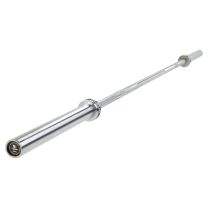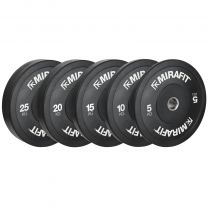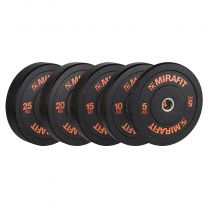Why Strength Training is Vital for Paralympic Swimming
Why Strength Training is Vital for Paralympic Swimming

When most people think of swimmers they assume that all the training is done in the pool, but strength training can provide both physical and mental benefits for both experienced swimmers and those looking to start swimming for the first time. Mirafit has spoken to Jessica-Jane Applegate, Team GB Paralympic gold medalist about her training routine and how weight training can help everyone.
Why is Strength Training Important for Swimmers?
It used to be that you would spend as much time in the water as possible, but I’ve found strength training to be really useful as I’ve got older. Explosive power helps with pushing off the diving block and tumble turns, and the weight training has really helped to increase that.
Doing core work strengthens the lat muscles, which helps as we are constantly swimming against resistance. Every single part of swimming is based on resistance.
We do so much strength training now compared to what we used to do. We would do the typical swimmer core workout like backstroke kicks but now we do core focused stuff with weight training involved.
Is Strength Training New to Swimmers?
I think when you turn 16 you start looking down other avenues. We used to do resistance band workouts and that was the standard for swimming. At the moment I’m doing a 2 and 1 plan – two weeks on and a one week deload and it is tailored for me by my head coach and assistant coach; if I’m doing a hard week in the pool then they reduce my load in the gym.
How do you Target Your Core?
I’ve been doing plank tucks, press ups, reverse crunches with a Foam Roller, and a lot of cable work. I try to cover the whole core because when you’re swimming it is the core muscles that keeps everything together.
I don’t do a leg focused day or an arm focused day, instead, I’ll do an all-round day session so nothing is ever too tired.
I’ve been supplementing my swimming with some weight training at home, and I taught myself how to ride a bike throughout lockdown. People kept saying ‘Jess, you’ve fallen off every week’, and I did, but I knew that if I keep practicing then, one day, I’ll have a week where I don’t fall off.
I also have three dogs, so I get out and do as much walking with them as possible. I think that if you’re an athlete then you’ve just got to keep going. If I don’t exercise then I don’t sleep, I’m very hyperactive so I have to be doing something all the time.
A company has lent me a swim spa to use during lockdown so that has been a wonderful help. It is very different to swimming in a pool as you swim in place against the jets. I also had a bungee cord tied to me in order to increase the resistance.
How Have you Had to Adapt Your Strength Training in Lockdown with Limited Equipment?

In the first lockdown I only had one resistance band and a can of beans, so it’s got a lot better! I have my home gym in what used to be the dining room; now I’ve got mats, dumbbells and resistance bands, a flat bench, a squat rack, and my bike. I got a lot of secondhand equipment and because I’m 6ft I didn’t fit very comfortably onto it, but it was better than nothing!
I used facetime to keep in touch with my personal trainer so that he could check my technique and see how my training was going. After I got my weights, he wrote them into a plan, and I suffered so much for two weeks.
I have hit so many PBs over lockdown because I’ve never been able to dedicate so much time to strength training without spending time swimming as I’m normally racing every other weekend.
How Does Your Training Differ in the Run Up to a Competition?
Four weeks out from competition I move into power and explosive work; lighter weights and moving them faster. I use Medicine Balls, do press ups with a resistance band around my waist and then I have either a one or two week taper where I’ll do very little gym and less swimming to ensure that I have more energy going into competition. I’ll go from 6000m per swim session to 2000-3000m.
Do you Find Swimming to be Therapeutic?

Definitely. Even when I’m exhausted, I am so happy to be swimming. I’ll have a bad day and when I get into the pool, I feel so relaxed and at home, and I can just be myself rather than trying to put on a front for people and pretend that I’m something I’m not. I have a learning disability and I get embarrassed about it and don’t like talking about it, but when I’m in the pool no one questions me, whereas if I have a conversation about it in everyday life people ask ‘what’s wrong with you’. When I’m in the pool, no one cares.
If You Could Go Back in Time and Start Again, What Would You Do Differently?
I would work on my technique a lot more because it would make my life so much easier now.
If You Were Doing Another Sport Other Than Swimming What Would It Be?
I would say either rowing or cycling. When I finish swimming I’ll do rowing. I enjoy sport for sport, the fact that I get medals and get to travel the world is a bonus, but I just love sport.
What Are the Benefits of Swimming?
It’s an all-round workout, every muscle group is being used, but one of my biggest benefits is mental. I also find that swimming really helps my asthma as you do a lot of breath training.
What Advice Would You Give to Someone Who Wants to Start Swimming?
Enjoy it as much as you can for as long as you can, because you never know what will happen in the future. Also, make sure you are doing it for yourself rather than for anyone else and that you have fun. If you’re having fun, then the hard work will feel easier. If you’re not happy swimming, then find something else that makes you happy.
What Common Mistakes Do People Make When They Start Swimming?
They try and do too much. Don’t set massive goals, set small ones that you can reach and increase them once you’ve achieved. The small steps you take are so important.
What are the Three Key Pieces of Strength Training Equipment that Every Swimmer Should Have?

An Olympic Bar, a Mat, and Resistance Bands because you can do so many exercises with those.
Who Inspires You?
Michael Phelps as a swimmer but my mum is my biggest inspiration. She is such a hardworking person and she had to give up work when I was younger to be able to support my swimming career.
What is On Your Gym Playlist?
Hip Hop and Rap.
Mirafit are proud to root for Jess in the Tokyo 2020 Paralympics - make sure you follow her on Instagram, Twitter, and TikTok to keep up to date with her training.
For more content, follow us on Instagram, YouTube, TikTok, and on our official Mirafit Facebook page.
Enter your email to signup to our newsletter
Tags: Exercise Type > Strength







